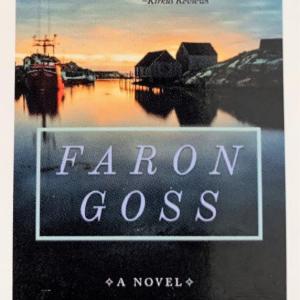Faron Goss: A vivid story of healing
When the body of Alison Goss washes up on Menhaden Island in the Gulf of Maine, there’s one question on everybody’s mind. What to do with the son she left behind?
Winner of Foreward Reviews’ INDIES General Fiction award, Diane Lechleiter’s debut novel follows Faron Goss, a peculiar young man who comes of age in the working-class fishing community of Menhaden Island. As Faron grows and the locals come to accept his strange but endearing quirks, a stunning artistic talent is also revealed. For natives of the region, various locations and events will seem familiar, from the iconic small-town eateries to the annual crowning of the Lobster Queen. Lechleiter’s time visiting her grandparents, Jack and Milfred Flood, on Southport no doubt inspired the novel’s atmosphere.
Lechleiter’s writing is incredibly vivid as she paints the isolated coastal community of Menhaden Island and the rough-and-tumble inhabitants who have carved out a living from its waters. The supporting cast will also be familiar to locals as Lechleiter provides brief glances into their pasts that could be larger stories on their own. I was struck by the visceral character descriptions that filled actions as simple as eating with personality.
The novel’s handling of Faron’s childhood “strangeness” is tactful and Lechleiter thankfully subverts having Faron’s differences make him dangerous. Instead, Faron is a realistic case of an isolated child, haunted by his troubling past, and who wasn’t given the resources to heal at an early age.
“Faron Goss” really shines with its nuanced depiction of abuse recovery and the complicated feelings survivors may have towards their abusers, especially when that abuser is a parent. As a Pratt Institute alumna, Lechleiter’s artistic background adds loving detail to Faron’s journey as he literally, and metaphorically, frees himself from the shackles of his trauma through painting. Faron’s ability to process his abuse and live a fulfilling life in spite of it truly encapsulates the novel’s theme of healing.
However, I was disappointed by the novel’s female characters. Most seem to fall into three categories: promiscuous, catty, or good-natured but destined to be injured for male angst. Their injuries were also usually the catalyst for a male character's absolution. Since “Faron Goss” is Lechleiter’s debut novel, I think she has an opportunity to improve her female protagonists and give them agency outside of their male counterparts.
“Faron Goss” is available at Sherman’s.

























